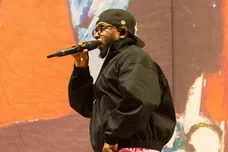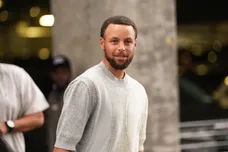Death has a funny way of canonizing a human being and admonishing them of any wrongful deeds that they may have committed. Informed by the societal rule of thumb that you “don’t speak ill of the dead,” funerals and memorials often serve as exercises in cleansing them of their earthly sins and giving them a fresh coat of saintliness. But as we know, a pivotal part of the human experience is not just making mistakes, but taking steps to evade the same pitfalls in the future.
In hip-hop, no artist has been accredited with the same posthumously messianic qualities as Tupac Amaru Shakur. He espoused his viewpoints on everything from racial injustices to poverty, lauded for his uncanny ability to make you not only consume his words but feel them in a way that few have been able to replicate. But for every sage observation that he may have made on “Keep Ya Head Up,” “Trapped” or “Brenda’s Got A Baby,” there are just as many moments in his personal and professional life where those admirable qualities were superseded by violent or, most unfathomably, misogynistic sentiments.
Convicted of first degree sexual abuse in 1994, it’s exceedingly difficult to rationalize how a man that enquired why “we take from our women, why we rape our women, do we hate our women?” or penned a recently unearthed letter to Madonna that urged her to be wary of dishonourable men can be the same person that used an alleged tryst with Faith Evans as a way to goad Biggie on “Hit Em Up” or informed females exactly “why they call you a bitch” on one of All Eyez On Me’s most polemic tracks. This type of duality that plagued his relationship with women was spawned by both the traumatic and enlightening experiences in his life.
Al Pereira/Michael Ochs Archives/Getty Images
When you look at the broader dichotomy of Tupac, there are two pieces of footage that illustrate how these warring factions existed within the same being. On the one hand, you have a young, wide-eyed Tupac at 17, discussing his outlook on the world at Tamalpais High School. Over the course of a riveting 36 minutes, we see an insightful young man that spoke with the astuteness of someone that had already emblazoned their mark on the world. When asked what the hardest thing about being his age is, his response illuminates the same plight that would besiege him for his entire adult life:
“I chase girls and want the car, loud music and all that. But I like to think of myself as really being socially aware.”
Then we have the image of the restyled 2Pac in 1994, enraged and carrying himself with a performative arrogance as he spits at every reporter and flashbulb in the vicinity. Captured outside of the State Supreme Court in New York City, Tupac ends his onslaught by swaggering into a vehicle and proclaiming “that's my new style.” Either tactful and contemplative or vengeful and belligerent, these two contrasting images can also serve as a startling piece of symbolism for his two-pronged approach to women.
In the years since his passing, there have been many attempts to interlink Tupac’s more abrasive moments with an undiagnosed mental illness. Kwame Alexander, the wordsmith behind the Tupac-inspired play The Seventh Son, has spoken of the late MC’s “schizophrenia” while writer and scholar Erica Loberg penned a three-party study entitled “Tupac Shakur and bipolar disorder.” In spite of his tendency to prophesize about life and death, Tupac had a much simpler explanation for how the seemingly disagreeable sides of him coexisted. Unwilling to deify himself in the same way that others have since his passing, Shakur saw no reason why tracks that praised strong women and those that tread on more chauvinistic ground couldn’t nestle beside one another in his discography.
"I said, I’m gonna write a song about the women like my mom, women like my sister, who I think represent the strong black women, and I did that," he relayed to MTV in 1994. "Now I’mma write about the women I see everyday and that was “I Get Around.” If I just write songs like “Keep Ya Head Up” it would make me seem more than what I am, but I’m just a normal man."
Aware of his own mortal foibles, Tupac’s entire life saw a succession of formidable and independent women lend him a guiding hand. Whether it was his lifelong friend Jada Pinkett Smith— who has discussed how they refused to get involved romantically as they were “both fire”— or his first manager Leila Steinberg, female counsel was always a cornerstone of his life. In fact, Steinberg, a long-term political activist that is now the poetically-gifted manager of Earl Sweatshirt, pinpointed Tupac’s empathy for his fellow humans as the main ingredient that solidified their bond. Speaking to Humanity Magazine, she declared that "Tupac was obsessed with the pain and imbalance in his community— all of the issues that he was born and cultivated to address."
But if any woman was the compass that developed Tupac’s affinity for addressing the world’s inherent failings, it was the Black Panther Party insurgent that was forced to carry him whilst his "embryo was incarcerated." Immortalized on Me Against The World’s “Dear Mama,” he commended his mother Afeni Shakur’s ability to triumph over adversity and thanked her for raising “a man” even when she was in the undertow of her own personal demons. Due to her allegiance to revolutionary causes, it’s no surprise that a young Tupac Shakur took their manifesto and transposed elements of it into his own ideology.
Unveiled on the posthumously released Don Killuminati: The 7 Day Theory, “White Manz World” was an avenue for Pac to express that the struggle that his mother rallied against is still very much alive:
"In time I learned a few lessons, never fall for riches
Apologizes to my true sisters, far from bitches
Help me raise my Black nation, reparations are due
It's true, caught up in this world I took advantage of you"
Profound as his words may be, the one line that pertains directly to women is one that gives a great deal of insight into Pac’s own distorted brand of feminism. Much like how he drew a distinction between "the strong women" and those that he "saw everyday," Shakur’s stint in jail for the sexual abuse of Aryanna Jackson meant that equality now came with caveats.
“I love women," Pac proclaimed during a 1995 interview with Angie Martinez. "Jail has made me appreciate women. But I hate bitches even more because I love women now. They make it bad for real women. They make it so when I meet a real woman she’s scared of me cuz of this bitch that said I raped her. But I love women, but I hate bitches."
Although he went on to claim that he aimed to “deal with both of them in every album,” his first post-jail project and Death Row debut presented Pac as a vastly different individual than the man that had ten months of freedom whisked away. Often cited as his magnum opus, the 1996 double album All Eyez On Me exhibited Pac at not only his most sexually explicit but also saw him embrace the role of the braggadocious gangsta rapper-- something he protested against both before and immediately after his incarceration. Across tracks such as "Wonda Why They Call U Bitch,” “What’s Ya Phone #," "All Bout U," "Skandalouz," "Ambitionz Az A Ridah" and "Heartz Of Men," we saw a new, far brasher Tupac that revelled in an opulent lifestyle of "hoochies" and "Tradin War Storiez."
But in a psyche where socially-conscious thoughts and youthful suggestibility vied for supremacy, it comes as no surprise that Don Killuminati: The 7 Day Theory— which was recorded just six months after All Eyez On Me’s release— saw the newly rechristened Makaveli toe the line between discussing unity between black and white on "Live And Die In LA" or vowing to protect the object of his affections on "Just Like Daddy," before penning an ode to his firearm on "Me And My Girlfriend" just three tracks later.
Prophetic in one breath and hot-headedly dismissive in the next, Tupac Shakur is defined by his multiplicity. As a result, you’ll find just as many people that will herald the fallen wordsmith as a feminist icon as will label him a misogynist who harboured fundamentally flawed ideas about women. However, what’s crucial to remember is that his life was brought to an end before he’d even reached 30. There’s every possibility that as he became more wizened, the canyon-like divide between his compassion for all and the more venomous aspects of his persona may have gradually ceased to exist. Voiced during an episode of Code Switch podcast on NPR, frequent Tupac interviewer Kevin Powell beautifully encapsulated this idea by comparing Pac’s inner conflicts to that of a similarly dichotomous Beatle:
"He was killed at 40, you know, but he got to go back and reflect on things. John Lennon, in his 20s, was a batterer to Cynthia Lennon. You know, I should not treat women that way. Sexism, violence against women and girls is not acceptable… I think Pac never got to reconcile those things. And that's why we see these multiple Pac's that people are drawn to."







